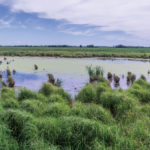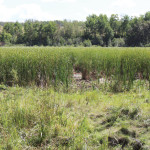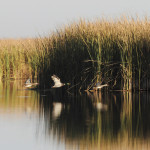
Tag Archives Wetland

Compensate farmers for environmental good: Ducks Unlimited
The conservation group has told the Senate agriculture committee protecting wetlands requires funding

Wetland restoration relies on farmer participation
MHHC is seeking more landowners interested in wetland restoration on their property, something that can benefit them and those downstream

Illegal trench now repaired at Big Grass Marsh
The job ahead — finding a way to reduce flooding in the area — will be more complicated

Cattail harvesting shows promise to aid province’s water woes
The cattail-harvesting project taking place at Pelly’s Lake sees progress in extracting overloaded nutrients and processing the biomass crop

Fertilizer run-off is just one piece of the dead zone puzzle
More perennial crops and protecting wetlands would help reduce the low-to-no-oxygen zone in the Gulf of Mexico

Creating environmentally literate citizens
A new educational site is being developed in Rivers, Man., with the goal of immersing youth in natural surroundings to instil the importance of environmental issues

Pelly’s Lake watershed management project complete
Officials visit site to see the gates opened on the now complete Pelly’s Lake Watershed Management Project

Retirement project reinforces need for conserving natural land
Retired dairy farmer Gord Hammell is redoing a breeding bird survey he did in the 1970s, documenting changes to local land, water and wildlife

Wetland count begins in southwestern Manitoba
Project will reveal distribution and interaction of wetlands in agro-Manitoba




